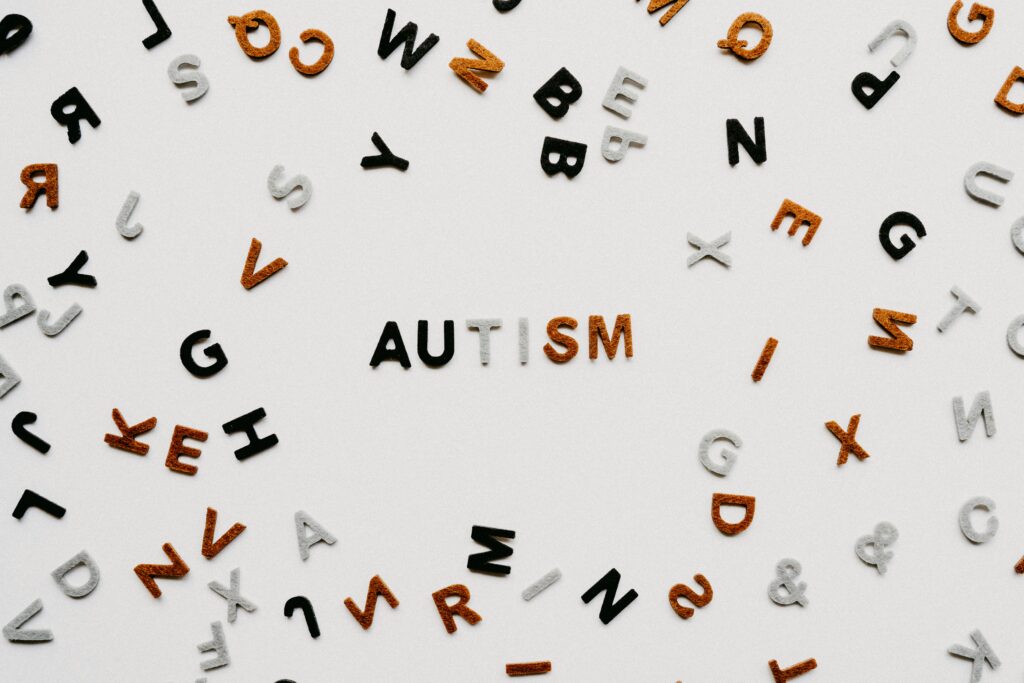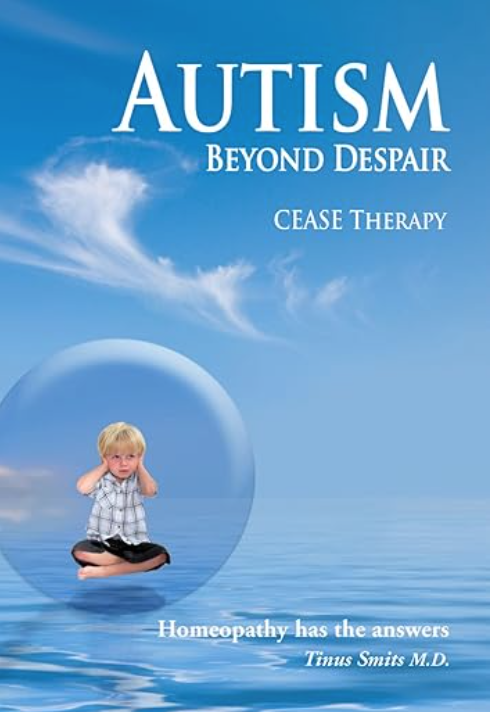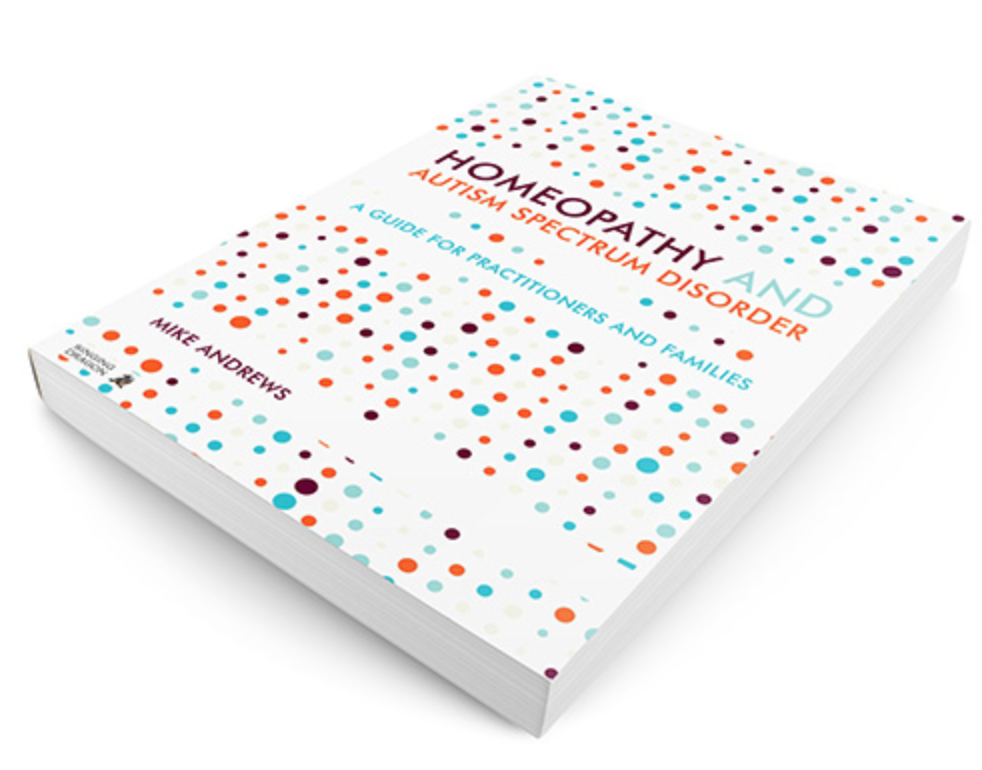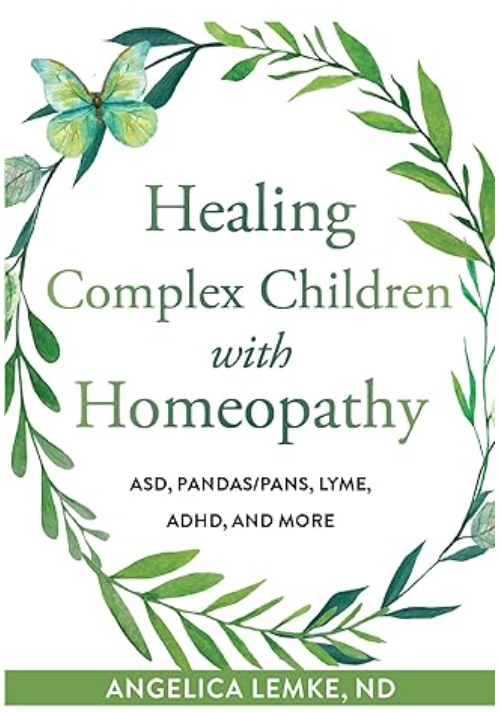Sensibly one should steer a clear course away from the topic of Autism and (and Homeopathy in context). It is without doubt a very sensitive topic today touching so many families.

This blog is prompted by a recent YouTube vlog from Dr John Campbell. He draws attention to recent reports from the CDC (Centers for Disease Control and Prevention) in the USA. They show the continued rise in autism, (see links to the reports at the bottom of this piece).
Robert Kennedy Jr, the US Secretary for Health, is to convene a summit of experts in an effort to better understand the problem.
Whether you dislike President Trump’s administration and / or John Campbell’s take on the matter is not important. The fact is that the CDC reports clearly show the magnitude of the growing problem in the USA. And a problem not just the USA but many countries across the globe.
In what follows, I wish to look at Homeopathy in the context of ASD. This too is not without controversy, so I’ll try and keep things factual.
Autism spectrum disorder (ASD) is a developmental disability characterized by difficulties with social interaction or communication and the presence of restricted interests or repetitive behaviors. ASD is recognized as a heterogenous condition with wide variation in the type and severity of signs, symptoms, and levels of support needed among persons with ASD (source CDC report)
Homeopathy is holistic system of medicine. Central to its philosophy is:
So, can Homeopathy assist in ASD cases? What follows is a look at three authors and homeopaths.
(1949?-2010)
Tinus Smits was a medical doctor in the Netherlands. Much of his medical practice through the 1990s and early 2000s focused on the treatment of autism. By the time of his untimely death he had seen over 300 cases. He worked with Isopathic, Homeopathic and Naturopathic therapies and clearly got results. He published a book Autism Beyond Despair just months before his passing.

Seeing common patterns across his patient group, he developed a protocol. This he called CEASE, an acronym (Complete Elimination of Autistic Spectrum Expression).
In an age of acronyms it was an accronym of its time. However, the inference of cure or that ‘Homeopathy has the answers’ (see book cover) risked certain censure.
Challenge came after his death from those who saw autism differently. The situation was becoming more complex. Autism was increasingly seen as a spectrum of conditions (e.g. Asperger’s is accepted as being within that spectrum). It is a spectrum that ranges from high functioning to significantly challenged. In part this helps explain the rise in cases.
By 2019 The Society of Homeopaths, mindful of the changing climate, cautioned members who had trained in the protocol to moderate any claims.
Actually, ‘Protocols’ do not sit easily within homeopathic philosophy, and Smit’s work was far from rigid in application. Homeopathy is individualised medicine. Patterns may exist but no two persons are the same, nor respond to treatment in the same way.
Nevertheless, the work of the late Dr Smits was an honest effort to address a difficult problem.
Mike Andrews is on the Society of Homeopaths Register and has specialised in the treatment of Autism for many years. He published a book in 2014 titled Homeopathy and Autism Spectrum Disorder – A Guide for Practitioners and Families. He practices according to principles of Classical Homeopathy (which is individualised and does not follow protocols).

In the years following Smits death, there has been a shift towards seeing autism as a different way of thinking and interacting with the world, rather than a disability as such. The term neurodiverse has come into common parlance.
Andrews writes (Chapter 11), “As a practitioner I have always tried to understand the way that a child perceives the world and recognise that society, most particularly education, needs to change its response to the message that these children can bring to us”. One focus then has been to address “difficulties with some of the symptoms associated with their gift”. Controlling aggression and anger for example.
Chapter 3 looks at the use of Homeopathy in the treatment of ASD around the world, and reports clinical results. Importantly, in the subtitle to Chapter 5 (The Holistic Approach), ‘Staying the long haul’, he writes that “in Homeopathy we seek slow, steady improvements”.
He also reflects on Tinus Smits work and contribution.
Mikes contribution is significant and appreciated beyond the UK shores.
Last on my bookshelf (but there are others) is a 2021 publication Healing Complex Children with Homeopathy, from Angelica Lemke, Naturopath and Homeopath based in the USA (https://homeopathyforcomplexchildren.com/).

In its opening chapters this book examines (Chapter 1) ‘Healing with Homeopathy’, and (Chapter 2) ‘The History and Practice of Homeopathy’.
Subsequent chapters consider the different remedy groups (minerals, plant etc.). A useful final chapter (Chapter 10) lists ‘Remedies by Categories of Complex Kids’ (e.g. ‘Angry Children’).
Geographically, Angelica is on the wrong side of the ‘pond’, but none the less this is a helpful book.
My impression is that she is a very intuitive prescriber and healer. She explains that what constitutes healing is different from person to person; which may mean improved function or for those with greater challenges at least finding peace with their child.
She writes that “People who gravitate towards homeopathy seek greater self-sustainability, want less reliance on institutions to scaffold and support them and tend to question authority. They understand that there are many variables – including environmental, diet, medical, and ancestral – that contribute to health.”
She also notes that early treatment after diagnosis yields better results, which given the neuroplasticity of the younger brain makes sense.
The above texts cover some quarter of a century of the homeopathic treatment of autism.
Perseverance is the order of the day – probably measured in years. As Mike Andrews writes, “Slow Steady Improvements”.
The general schism between the orthodox biomedical model and Homeopathy is unfortunate and unhelpful to parents and carers. In an ideal world, the different perspectives would usefully be shared; the paths to unraveling the mysteries of autism better understood.
What RFK Jr’s gathering of minds will reveal, remains to be seen. For sure a better understanding is needed and awaited.
I have only seen two cases in my small practice. One child assuredly got benefit the other – who was high functioning – less so. In line with the authors above I reemphasise that progress comes in small steps over months and years.
Homeopathy is not biochemical medicine. It works energetically on the invisible life force or spirit which animates us from conception to death. It is this the tuning of this same life force that sets the pace of change.
Perhaps you would be interested in exploring Homeopathy? I offer a free 30 minute discovery call to allow you to investigate further.
https://www.hhs.gov/press-room/autism-epidemic-runs-rampant-new-data-shows-grants.html
https://www.cdc.gov/mmwr/volumes/74/ss/ss7402a1.htm?s_cid=ss7402a1_w
https://www.cdc.gov/mmwr/preview/mmwrhtml/ss5601a1.htm
https://www.priorygroup.com/mental-health/autism/autism-statistics
https://digital.nhs.uk/supplementary-information/2024/autism-prevalence-in-england-march-2024